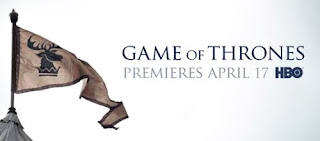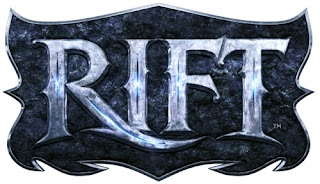Shiny CGI, 3D, everything in slow motion, erm, I mean, bullet time, prequels and sequels and remakes, fantasy, superheroes, comic book adaptations, Science Fiction (don't get me wrong, I love all these genres), and worst of all: happy endings.
I was craving for something NEW, something DEPRESSING, something REAL!
So I searched the internet for something that would fit my criteria and it turned out, apparently I wasn't the only one who was bored out of their mind by the current cinema trend because all of a sudden, from everywhere, these new, depressing and "real" movies popped up.
I made a small selection based on storyline and actors/directors I already knew and liked (funny enough, a lot of these kind of movies are productions from the United Kingdom, by the way) and gleefully I rubbed my hands as I pressed the "buy" button and was excited like a child at christmas when the parcel from amazon arrived.
Three movies were in the box and three movies I will review, starting with the last one I watched: Chatroom.
First off, many of you will probably be surprised when I mention the director of this stunning piece because even though it is a UK production, the director is a very well known Japanese guy.
Let me just give you a couple of hints: He likes girls with long black hair who hang out in wells, weird things going on with video tapes and rings.

DING DING DING, yes, you got that right! Hideo Nakata, the director of the original Ringu
(why I find it totally ridiculous to call it "ringu" when in fact it is pronounced "ring" in Japanese, too, is a different topic... Just wanted to point that out. Grrr!) and the US remake of the second film, Ring 2, is responsible!
What an interesting surprise! Him being the director was one of the reasons I wanted to watch Chatroom.
Another good reason to watch it is the composer - yet another Japanese guy - the amazing Kenji Kawai, internationally possibly best known for his work on Ghost In The Shell (and again, the Ring movies), but he's generally a popular anime composer anyway, so, if that's your kind of thing, you'll probably know him.
The film is based on a play by the same name written by Irish playwrite Enda Walsh who also wrote the great Disco Pigs, which was turned into a great movie in 2001 and was kind of the stepping stone for Cillian Murphy, and the equally great and intense 2008 film Hunger about the imprisonment and death of IRA member Bobby Sands. Since I love both Disco Pigs and Hunger, him having provided the original idea was another reason I wanted to watch this film.
Now, the actors are - to me - all but one entirely unknown.
We have five main characters, five teenagers: William, Eva, Jim, Mo and Emily, played by Hannah Murray who some people may know as eating disordered Cassie from the first generation of the original UK series Skins.
William is played by Aaron Johnson who played the Character of Kick-Ass in the movie of the same name, but I have to admit, I still haven't seen that. My apologies. Hence, Aaron was previously unknown to me.
Eva is played by Imogen Poots who was in 28 Weeks Later (a sequel I REFUSE to watch, as 28 Days Later was way too amazing to be ruined by sequels) and young Valerie in V for Vendetta, but again, an actress I've never really paid any attention to. In V for Vendetta I was a bit preoccupied with Natalie Portman.
The character of Jim is given extraordinary life to by Matthew Beard who has so far only had roles in TV series but has just completed the movie Hippie Hippie Shake alongsiiiiide: Cillian Murphy! (and so, the circle closes)
And finally, Mo is portrayed by Daniel Kaluuya, also from Skins (since I've only managed to watch 5 episodes of that series yet I haven't seen him on screen so far, I think), and other popular UK tv series such as Psychoville and Doctor Who.
As you can see, a lot of promising young actors.
As much as I love watching movies by "old" actors I already know and love, it is always very exciting for me to watch new, young actors.
The story is set in London with outside shots filmed in North London, mainly in the popular shopping paradise Camden as well as Primrose Hill.

The rest of it takes place inside several "chatrooms", visualised by a long, slightly shabby looking corridor and individual rooms which the characters can create, decorate and secure to their liking, with chairs or beds or anything, really, on which the chatters sit and communicate with one another is if they actually were in an actual room together.


But not only the chatrooms are visualised in such a manner, everything that takes place on the internet, private messaging, online gaming, is shown as an individual room.

Solely by chance (and possibly boredom), five teenagers happen to log in to a chatroom called "Chelsea Teens!", created by one of them, William.
The initial conversation is light hearted and a bit chaotic but already after the first few minutes the five of them decide to meet again and chat on a regular basis.
The chat and general online sequences are interrupted to show the actual surroundings of the teens, sitting at home in their room on their laptops or out shopping, online with their cell phones, which gives a first insight into their individual characters and how they live, quickly making it clear that each of them uses the online world as a means to escape their otherwise troublesome lives in the real world, embracing the possibility to create new personas for themselves and live out different sides of their personality they can not really live out in their real lives.
Before long the audience realises that each of them have their own little "teenage problems" which at first don't seem to be all that serious, e.g. Emily, the smart, well educated, well mannered girl, is dying to break out of her all-too-perfect world with her high-achieving but emotionally distant parents, Mo is in love with his best friend's little sister, and even Jim's shyness and depression doesn't come as much of a surprise anymore in this day and age, but soon - as they say - shit starts to get real.

Over the next few weeks the five of them meet again often, either
all together or for smaller, more private talks, revealing more about their true selves as they start learning more about the others and, ultimately, bringing the worst out in each other, starting with harmless acts of vandalism, like Emily smearing dog poo on her mother's windscreen, to much, much more serious crimes.
What started off as simply helping one another by offering support and by giving advice to improve their idividual situations quickly spirals out of control, affecting the lives of all of them, especially Jim's and William's, who seems to be the most messed up of all of them and who's truly sick mind and malevolent nature leads the story to its tragic end.
Now, obviously I am NOT going to spoil the ending for everybody but let me tell you, it is definitely worth paying the 7 or 8 quid for.
What makes Chatroom and its characters so interesting is that it cleverly shows just how easy it is to manipulate people, especially hiding behind the anonymity of the internet (cyber mobbing, anyone?), the dangers and darker sides of the world wide web, how fragile minds can be and how soon - what started off as harmless fun - can turn into something deadly serious.
Interesting is especially the discrepancy between the written and the spoken word, the intention and the reception - something that has been bothering linguists for ages - the lack of intonation more often than not making it exceedingly difficult to see the true intentions of a "speaker" who writes something on the internet.
There is a scene between William and Jim which shows quite well just why this is a problem.
As the audience, seeing them interact with one another in the room, we can HEAR and SEE the way William - the sender - speaks, but at the same time we know that in reality, on the other side of the computer screen - as the reciever - Jim can only read the words but not hear the tone in which they were spoken, or see the body language of the sender in order to gather further information about the intention, thus understanding Williams words only in the (positive) way he wants to understand them as, but not in the (negative, sarcastic) way William meant them.
Obviously, the lack of face-to-face intimacy in the online communication process acts entirely in William's favour here as Jim's missunderstanding is exactly what he aims for.
Apart from that a couple of rather uncommon topics are dealt with in the movie e.g. Paedophilia in teenagers, (auto-)Agression and self mutilation, hacking/cyber terrorism/internet crime, possibly internet addiction and - majorly - Sensationalism/Voyeurism.
Concluding I would like to say that, apart from the highly interesting story, the cimenatic realisation of this former stage play is fantastic.
When you think about it, the idea of placing any and all online scenarios in actual rooms is most definitely something that Hideo Nakata borrowed from the good ol' stage productions.
Nonetheless, the film comes across as truly unique and intruiging from start to finish.
It definitely had me on the edge of my seat for the whole 90something minutes and if you are looking for something new, unique and visually appealing, click here.


































